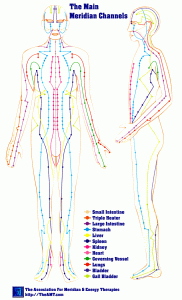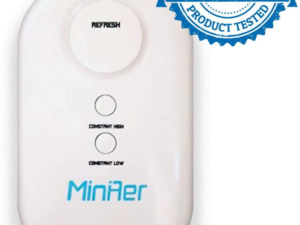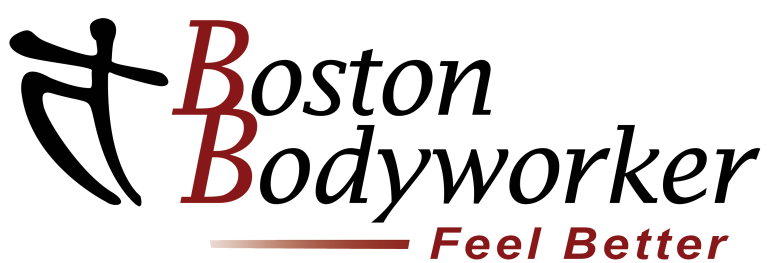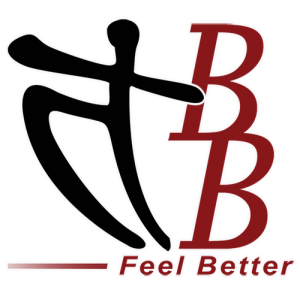What is Qi?
What is Qi?
A fundamental concept of traditional Chinese medicine (TCM) dating back over 3,000 years, qi (pronounced “chee”) is the Chinese word for energy, which also carries with it connotations of “air,” “breath,” and “life force.”
In TCM, it is understood that everything from humans and animals to rocks and trees is filled with qi. This energy facilitates function, communication, and connection and is the uniting force of the universe, as well as the animating life force in all objects.
Qi in the Body
Qi flows through the body via the 14 meridian channels, which run either up or down throughout the body along specific pathways. These pathways deliver energy to organs, structures, and systems in a constant pattern, and when qi is flowing along these meridians a person is said to be in balance.
Illness, injury, stress, and other trauma can cause blockages along these meridians, thus impairing or stopping the flow of qi and resulting in energy congestion. Several TCM techniques are designed to clear these blockages and restore balance and flow to the body’s energy.
Working with Qi
Along each meridian are points, known as acupoints or pressure points, where these energy blockages are likely to occur. Significant acupoints are also known as trigger points, and these are often starting points for therapists working to clear congested qi.
An important principle of qi is that clearing blockages at certain trigger points will help restore flow and thus impact parts of the body that are connected along the various meridians. For example, this could mean that working on someone’s foot might benefit an internal organ like the liver. This concept further illustrates that qi in the body is one balanced system in which one imbalance can affect several body parts and even alter emotional states.
Cultivating Qi
Every person is born with a certain amount of qi, and through our lives we increase it and refill it through breathing, eating, and moving. One specific practice of movement to increase and balance qi is known as qigong, a system of hands-on and hands-off techniques that incorporate timed breathing, gentle movement, meditation, visualization, and more to build and balance qi. This practice can be undertaken with a qigong practitioner or on one’s own once schooled in the movements and techniques.
Another movement practice intended to increase and balance the body’s energy is t’ai chi, which uses relaxed breathing and rhythmic movements to relax the body and refresh the mind. T’ai chi is not strenuous and can be practiced by people of any age.
The Cycle of Qi
 A TCM practitioner focusing on qi often asks more questions of a client during the intake process than a Western-styled massage therapist. One reason for this is that balancing qi is more than just correcting physical blockages; it is about understanding what may have caused those blockages in the first place and correcting that root cause.
A TCM practitioner focusing on qi often asks more questions of a client during the intake process than a Western-styled massage therapist. One reason for this is that balancing qi is more than just correcting physical blockages; it is about understanding what may have caused those blockages in the first place and correcting that root cause.
Qi is also linked to elements and seasons in a cyclical way that can become disrupted.
Specific disharmonies or blockages can relate to specific phases, and knowing more about you can allow the practitioner to better assess and understand how best to help rebalance your qi.
Understanding Qi
For many people familiar with the Western medical tradition, qi is a difficult concept to grasp. Talking with a qigong practitioner or participating in a t’ai chi session are a few ways to gain exposure to the movements and the attitudes surrounding qi, but for some it may take experiencing energy work to actually come to a better understanding. If nothing else, sitting quietly and focusing on your body can help you appreciate the ancient idea that we are filled with qi running throughout our bodies.
Randy Burgess, a practitioner trained in acupressure and tui na, uses the following analogy of a boat in the water: “The wind reaches the sail, the sail expands and applies pressure to the mast, and the pressure to the mast moves the boat through the water. The wind isn’t qi, the sail isn’t qi, the mast isn’t, the boat isn’t, the water isn’t. The qi is where the wind meets the sail, where the sail applies pressure to the mast, where the mast applies pressure to the boat, where the boat slips through the water. If there are holes in the sail, you’re going to have qi deficiency; if the mast is weak and moves, it will move the boat forward, but there is deficiency; if there are barnacles on the hull of the boat, it’s not going to slip through the water efficiently, and there is deficiency.”
Ready to #feelbetter?
You're just a click away from a wicked good massage!
-

60 Minute Massage Gift Card
$170.00 Add to cart -

90 Minute Massage Gift Card
$255.00 Add to cart -

Mini Aer Small Room Air Purifier
$149.00 Add to cart -
Sale!

Thera-Pearl Sports Pack/Hot Cold
Original price was: $14.99.$12.99Current price is: $12.99. Add to cart -

3 Somadome Sessions Gift Card
$135.00 Add to cart -

TheraBand CLX Connective Loop
$14.99 Select options -

6 Somadome Sessions Gift Card
$270.00 Add to cart -
Sale!

Biofreeze
Original price was: $14.99.$12.99Current price is: $12.99. Add to cart
Change the Angle of Your Stretch!
Change the Angle of Your Stretch! We have all heard time and again that stretching is a great way to reduce the risk of injury as well as aid in recovery from a work out. So why is it that we still get injuries and our bodies feel sluggish, even when we stretch? The broad…
Read More6 Stretches to Reduce Back Pain
6 Stretches to Reduce Back Pain At some point or another, we all have experienced some form of back pain. As I have explained in some of my previous posts, the degree or level of pain that is experienced is subjective to the individual based solely on their own neuro-signature. Simply put, no two people…
Read MoreLife Hack: Under Pressure
Life Hack: Under Pressure When we think of a “hack” to something, we typically envision some unique way of doing something better and more efficiently than normal. However, some hacks can simply be a means of saving money, not just time. Last winter, we added some new construction to our home of 15 years. The…
Read MoreJust Keep Moving
Just Keep Moving If you are sitting at your desk right now reading this, you may be wondering how it’s already September and summer is (un)officially over. The kids are back in school. Students from all over the globe have reentered our neighborhoods and roadways. The traffic suddenly seems to be more packed. Alas, another…
Read MoreHave A Dose
Have A Dose The readers of this newsletter are all patients of The Boston Bodyworker, so there is no reason to try and “sell” you on the benefits of massage therapy. However, often we hear our guests struggle over expressing why they get a massage on a regular basis. It is our responsibility to not…
Read MoreLife Hack: Wall Angels
Life Hack: Wall Angels So, while your boss is away, and the office is emptying out earlier and earlier as we reach the apex of summer time in Boston, you’re still grinding away making the most of this opportunity to get ahead. But wait, what is that pain you’re starting to feel between your shoulder…
Read MoreActions Triumph Words
Actions Triumph Words Over the years, we have all found certain quotes or guidance to motivate, lift and energize our spirit and those of others. I have so many favorites, but there are three in particular that I have been repeating to myself, my kids and even the kids I coach, more than any others…
Read MorePreach; Calories In vs. Calories Out
Preach; Calories In vs. Calories Out Summer time is the time of year when we typically want to look our best. Let’s face it, despite the fact that we live in a world that is openly less critical of body types and encourages us to see each other for what we do and how we…
Read MoreLife Hack: 4th of July!
Life Hack: 4th of July! With the fourth of July just around the corner, we though you might enjoy some Red-White & Blue Homestyle life hacks that are fun, crafty and some are even edible! Check out these life hacks from our friends at BuzzFeed. My personal favorite is #16. Send us your creation if…
Read MoreWhy Run When You Can Sprint?
Why Run When You Can Sprint? Time and again, I hear from so many that the reason why they don’t work out more is because they don’t have time. Well, what If I told you that you can achieve the same health benefits of a 30-minute run in less than 60 seconds? REALLY! As the…
Read More

